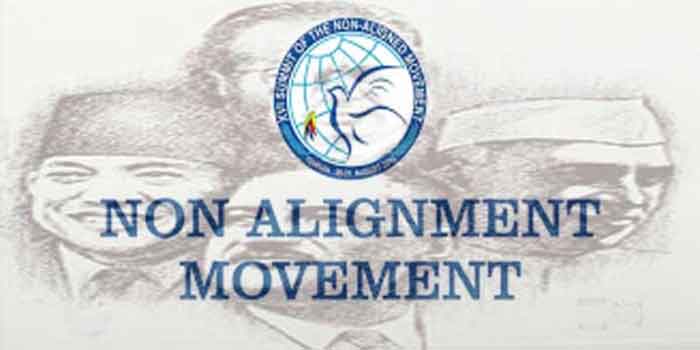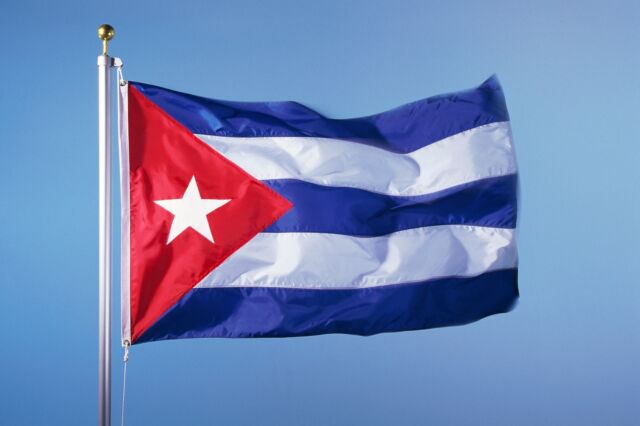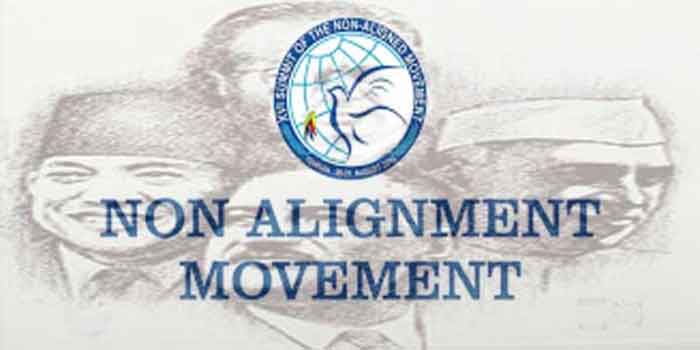
In recent months the need for strengthening the Non-Aligned Movement (NAM) has become clearer than ever before. As USA/NATO relations with Russia and China have deteriorated fast, there are increasing indications of the world’s division between two major political and military power blocks being strengthened, the dividing lines becoming deeper.
First and foremost, it must be stated clearly that this deepening of the division between the two major power military blocks, together accounting for over 98% of the total nuclear weapons of the world and the bulk of the most other highly destructive weapons as well, is deeply problematic and highly dangerous. Efforts to avoid such a clear and deep divide should continue to get priority. If there is an exchange of nuclear weapons between the two major power blocks, then depending on how big it is, the effects will not be confined to the fighting countries only but will spread to many or perhaps even almost all parts of the world. So the first and foremost consideration is to avoid the deepening of the divide between two major blocks and to avoid the use of weapons of mass destructions or other equally destructive possibilities.
However at the same time most other countries of the world have to think of their options in a divided world. They will not like to be caught in the middle of the military, trade and economic conflicts of these two major military blocks. They will not like to be left alone to face the pressures of one or both power blocks. They will like to retain their sovereignty and freedom without coming under the influence or dictates of any power block. They will like to pursue the best options available for their people. They will like to achieve this in conditions of peace and stability and will like to contribute to this.
To be able to achieve this, NAM has an increasingly more important role, as several well-informed commentators and scholars have been saying in recent times. So NAM should be strengthened and reformed to play this role of increasing importance more effectively. This movement has been in relative decline in recent times. This decline must be reversed.
However while there is a clear and strong case for resurgence of NAM, several serious questions relating to this remain to be answered. One of these relates to countries which should play a leadership role in this. In its earliest and most hope-giving phase, the leadership role had come from a few countries and their leaders with a very high stature and ethical authority –India (Nehru), Yugoslavia (Tito), Indonesia (Sukarno) and Egypt (Nasser). Yugoslavia no longer exists, sadly, and the other three countries have experienced significant erosion of their ethical authority in terms of erosion of internal democracy and other factors. Other leading countries like South Africa, Nigeria and Brazil are in no better position. Relatively neutral European countries like Finland and Sweden have recently surrendered this position by agreeing to join NATO.
Then there is also the question of the dependence of several countries on either the USA or China or both in terms of debt, trade, essential supplies or other factors. This issue is by no means confined only to smaller countries. A large and important country like Pakistan is indebted rather heavily to both the IMF and China; even in matters of military cooperation it is in a peculiar position of wanting to be close to both China and the USA.
Another problem will arise relating to membership of those countries which to a considerable extent are a part of one or the other power blocks, but will nevertheless like to be a member of NAM, or are already a member of NAM.
Despite these problems, a resurgence of NAM is still desirable, with an important role being played by India in particular. Leaving aside several differences, NAM members will have to learn to concentrate on achieving certain broad objectives like defending their sovereignty, resisting sanctions and restrictions by big power blocks, increasing economic co-operation and improving trade within NAM countries, striving for overall world peace and stability, disarmament and in particular minimizing weapons of mass destruction.
In the prevailing conditions it will be unrealistic to have very high hopes, but realistically NAM can still contribute to some betterment of a world in deep trouble.
The writer is Honorary Convener, Campaign to Save Earth Now. His recent books include A Day in 2071, Planet in Peril and Man over Machine.












































